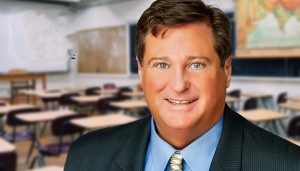Editorial Submitted By: Paulette Jackson - In the year 2013, Life Magazine published a collection of individuals who, because of their own passion ... made a difference in our world.
The magazine highlighted a hundred people who, made a significant difference in their own lives and world, as well as bringing to others, creativity, motivation, discipline, ideas and realized inventions, to the forefront of culture, where never before, creativity and vision would take center stage with unsurpassed welcome, with an intention to focus, on caring for life and the world in which we live.
In the photo collage above, I have highlighted seven of the one hundred people who changed the world, according to Life Magazine. Each individual has brought to our world, a healing, or reason, for various aspects of life.
I hope you will enjoy the excerpts of seven of the 100 people who changed the world, as well as be amazed at their passion and creativity ... to intervene with hope, in our lives and our world.
Johann Gutenberg: (1398-1468) Born in Mainz, he later became a native of the city, Strasburg, where he became a printer. Sadly, he lost his press, to settle a debt. But as we know how difficulties may open better doors, Gutenberg, now being financially in straits, he began to follow his own vision, that of a moveable type that one could set and fix, a press that could turn out multiple copies, and suitable ink and papers would be entirely different than handwriting or block printing operation.
His point was proved initially when he published the Mazarin or Gutenberg Bible, revealing that literature was proliferating
in Europe and progressing socially at a speed unrealized by other sectors of the globe. It wasn't long before moveable type was a tool of industry, learning and governing... and Gutenberg is the one who is credited.
Louis Pasteur: (1822-1895) Before the French chemist made his breakthrough with bacteria, the general belief was a concept known as spontaneous generation- which means that life could and sometimes did emerge from inanimate matter; sources other than living seeds, eggs or combination of the two. The myth had been on the books for more than two thousand years, since Aristotle synthesized various theories into a single treatise.
After Louis Pasteur, germ theory and cell held sway, and because they did, progress could be made in preventing and curing illnesses. Pasteur discovered that many illnesses and infections have their roots in microorganisms, proving sterilization. After proving that theory, sterilization came into play and physicians began to treat their equipment before treating a patient.
He is known for developing his cure for rabies and devised a way to control silkworm disease and chicken cholera. He created a vaccine against anthrax. He is also known for the crucial process that bears his name, pasteurization, in which liquids are heated to destroy microorganisms - such as bacteria. Indeed, it can be said, that Pasteur was the most important scientist the field of medicine has ever known.
Norman Borlaug: (1914-2009) Norman Borlaug was a man who, many of us may not be familiar with. An agronomist, who was dedicated to his pioneering work, he received a PH.D. in plant pathology, and genetics from the University of Minnesota, in 1942. His interest was to research high-yield, disease resistant wheat varieties. It was clear to him that such strands could help in the famine-plagued third world.
His breeding techniques spread through Latin America and Asia and by 1963, the country of Mexico was exporting wheat.
A humble man, at the age of 56, his wife brought the news to him that he had been awarded the Nobel Peace Prize. Norman's response was, "Someone's pulling your leg." His wife assured him that there was no leg-pulling. Norman went back to work, telling his wife they would celebrate later.
Mother Jones: (1837-1930) She was a daughter of a tenant farmer Ireland. Immigrating to the United States. She emerged from personal tragedies that many would not be able to overcome. She became a labor organizer and formidable crusader as well, at a time when the right to vote was still be fought over.
She married George Jones, from Memphis, a laborer and member of the Molders Union. They built a family of four children, but sadly, yellow fever swept through Tennessee and all of the Joneses, except Mother Jones, passed away.
Finding solace in her faith of Catholicism, and recalling her husband's purpose in the Knights of Labor, which later became the Industrial Workers of the World, Mother Jones became a charismatic and powerful help to organize strikes for mine workers nationwide.
In 1902, on trial in West Virginia for having ignored an injunction against assembling striking miners, she remained stoic as the district attorney looked at her and told the court, "There sits the most dangerous woman in America. She crooks her finger-twenty thousand men, lay down." Those men weren't contented, and neither were the parents of children being exploited in mills and mines.
In 1903 Jones held a youth march from Pennsylvania to the front door of Pres. Theodore Roosevelt's, house in New York, forwarding the crusade that led to child labor laws. A decade later, after organizing coal miners in Colorado, she was granted an audience with John D. Rockefeller Jr. of Standard Oil, who then travelled west, inspecting conditions and ordering reforms. Mother Jones gave a different description to labor grievances, and her associations with the unions bettered conditions for workers, and also established a better model worldwide.
George Washington: (1732-1799) He was an example of a man who could change the course of world events through the exercise of his strong moral character. It has been said that he was the indispensable man of the American Revolution.
A planter's son from Virginia, Washington listed toward the military early and was a most impressive, strong soldier. He had a strong constitution, "hardy enough" he said, "to undergo the most severe trials." "And by the all-powerful dispensations of Providence, I have been protected...I had four bullets through my coat, and two horses shot out under me, yet escaped unhurt, altho' death was leveling my companions on every side of me!"
He was a man of uncommon courage, as asserted by a quote, stating, "The crisis is arrived when we must asset our rights." He led with uncommon courage as well as observed brilliance.
King George III of England marveled that Washington sought no recompense in terms of money or power for what he had done:
"If true, then he is the greatest man in the world."
While George Washington may have been the greatest man in the world, he was certainly an uncommon sort of man. America turned her eyes to this man and made him, unanimously, its first President. No one else could represent - no one else embodied - what the nation hoped to become.
Michelangelo: (1475-1564) When assessing how any artists in any field, might change the world, we can sometime find the specific example. With Michelangelo, we can cite his integration, of Scripture and Architecture. But who was this man behind the art?
Michelangelo was born in the Tuscan town of Caprese in 1475, and by the age of 13, he was an apprentice in Florence. He received many commissions from the Church. and his art is represented through the Vatican. He poured himself into his work for 88 years, and in turn, his work, worked on him. A second Pieta, labored on tirelessly in his age, shows signs of increasing spirituality, and in the face of Nicodemus, who is supporting the dead Christ in the statue, is said to be a self-portrait.
Jesus: (Circa 5 B.C.-A.D.29) Descended from Abraham through the line of Isaac, as extended through David. He was born, a virgin birth, to Mary and Joseph, the Christ, God's Son made flesh. And He came to earth, to redeem His people from their sin, that they might have eternal life. John 3:16: "For God so loved the world that He gave His only begotten, that whosoever believes in Him might have everlasting life."
Wishing all a peaceful Christmas. May we honor those who remind us of our life and our commitment to life, here on earth. And may we honor and be reminded of our eternal life, with God, the Creator and the Son, Who gave His life for us all.
For the Support of Your Life
For the Many Sides of Life
The thoughts and intentions expressed in The Conversant Counselor's blog, are those belonging to the author and do not necessarily represent the opinions of any other individual or professional.
###
Editorial Submitted By: Paulette Jackson













